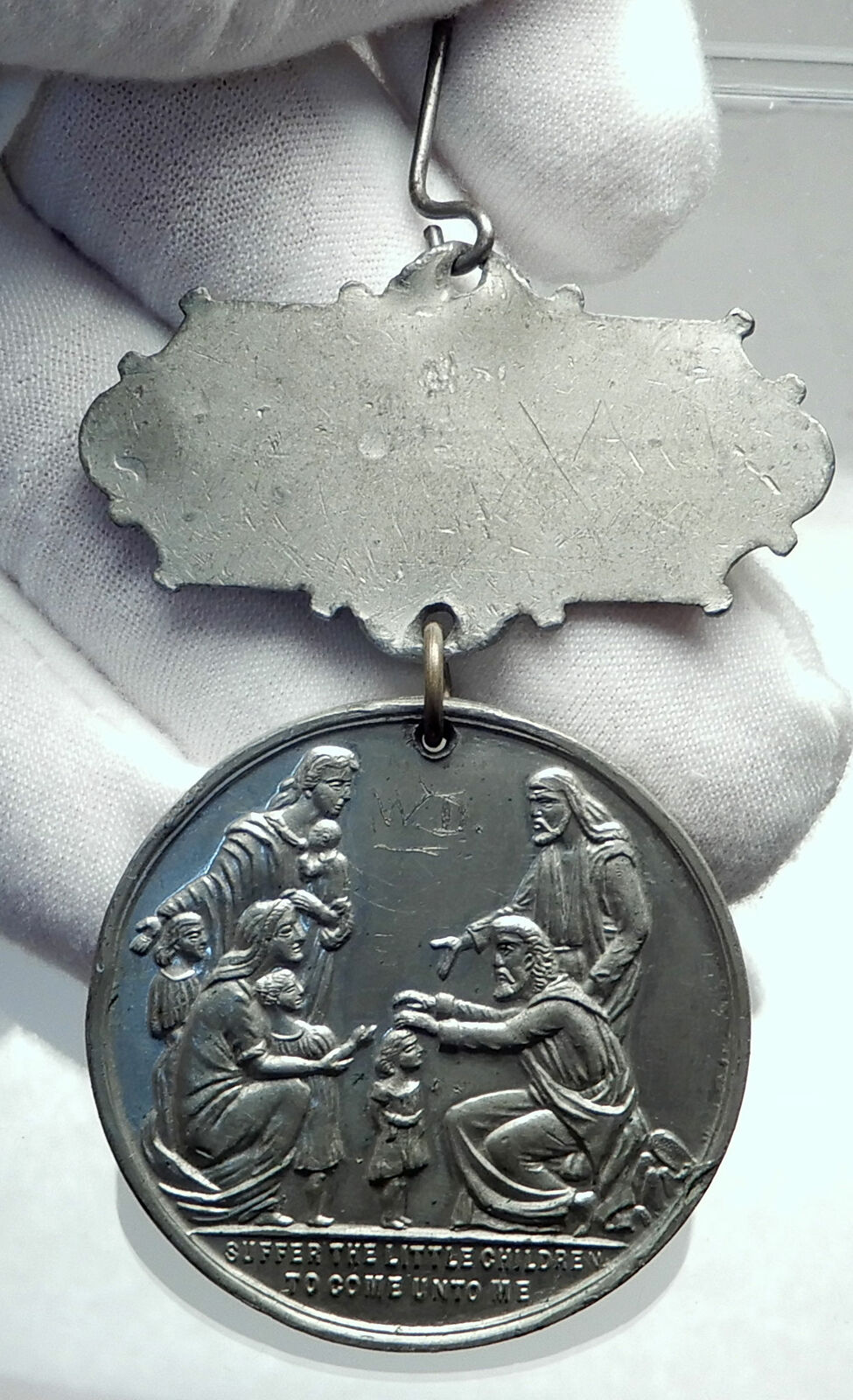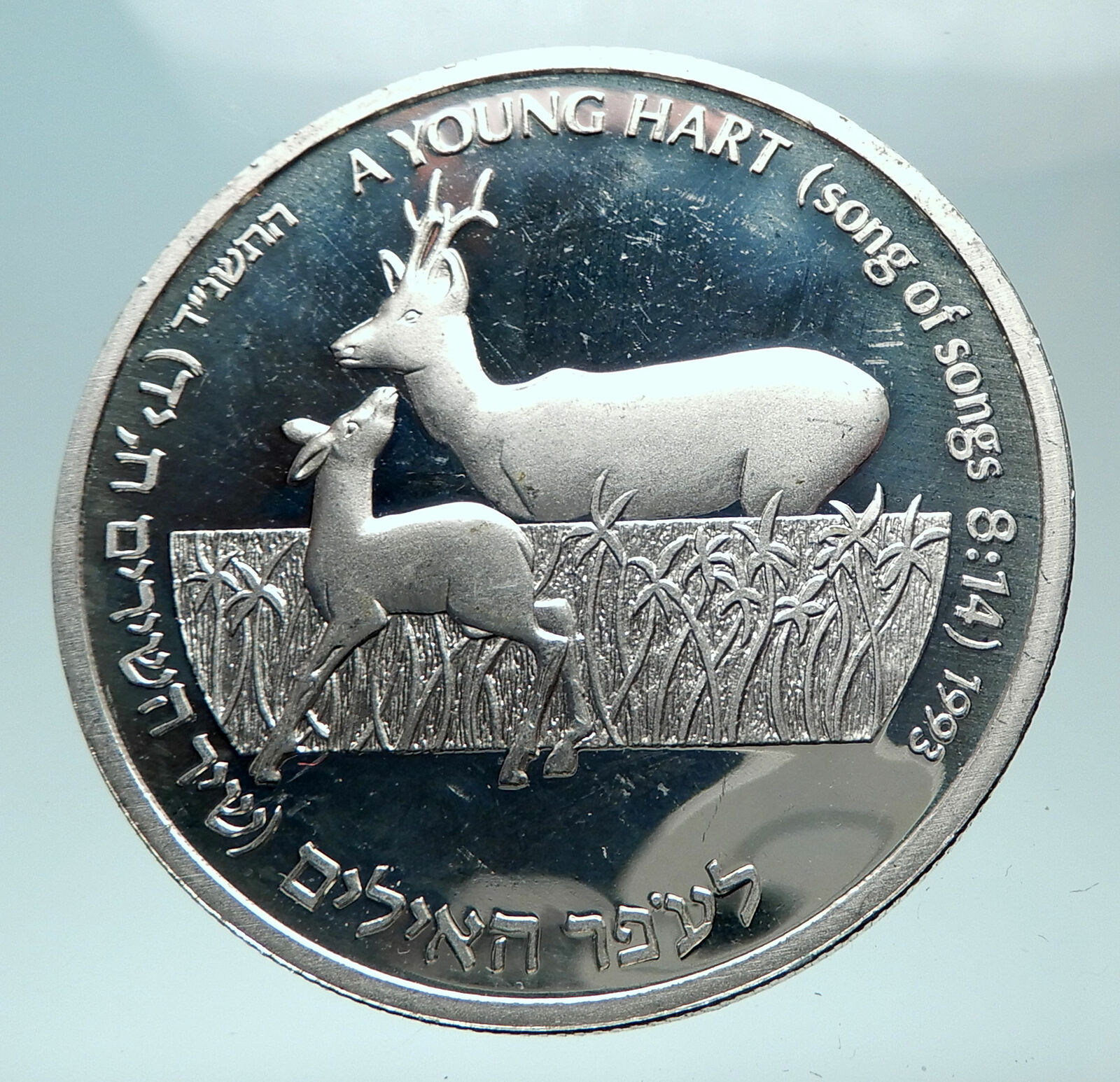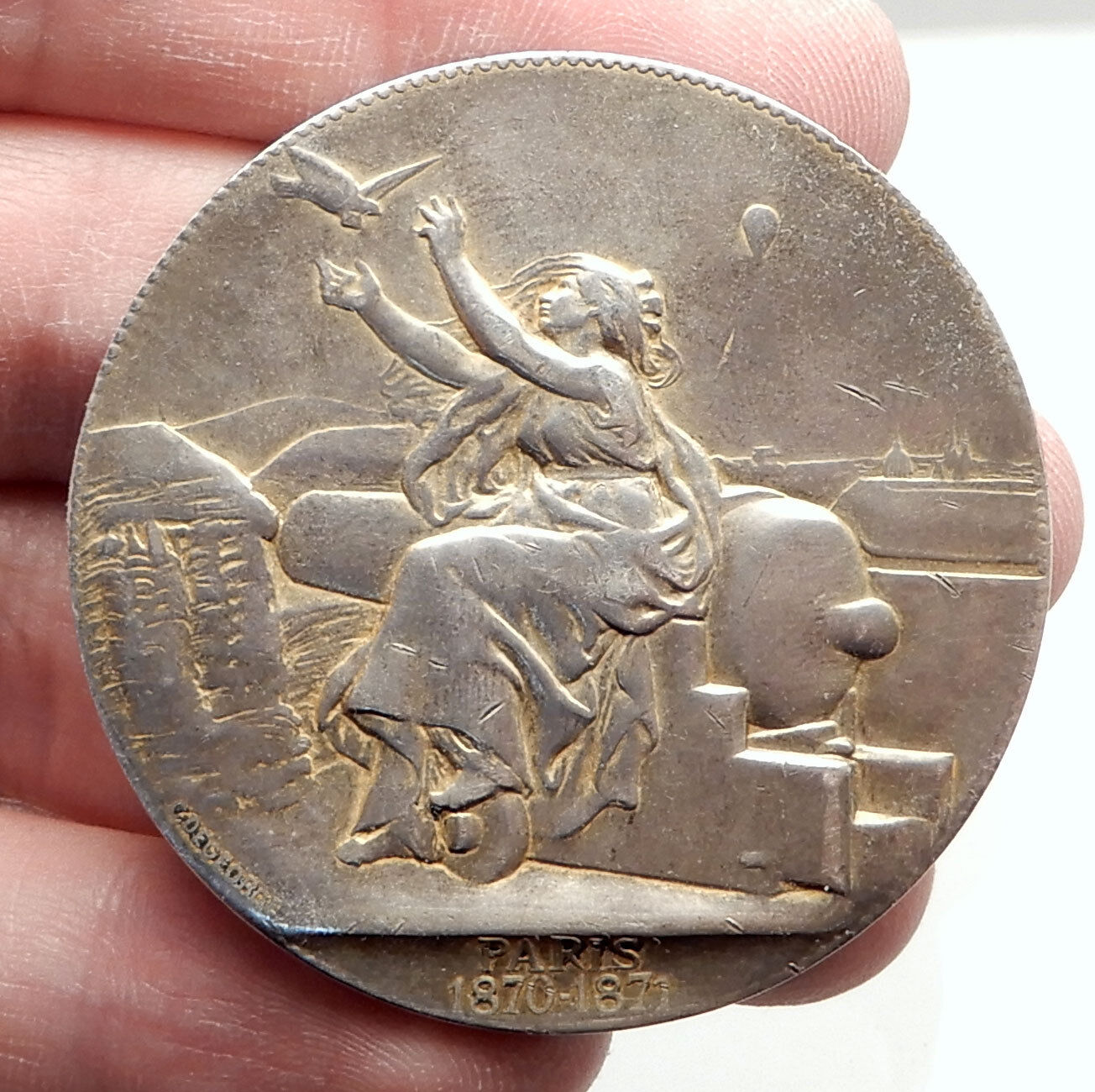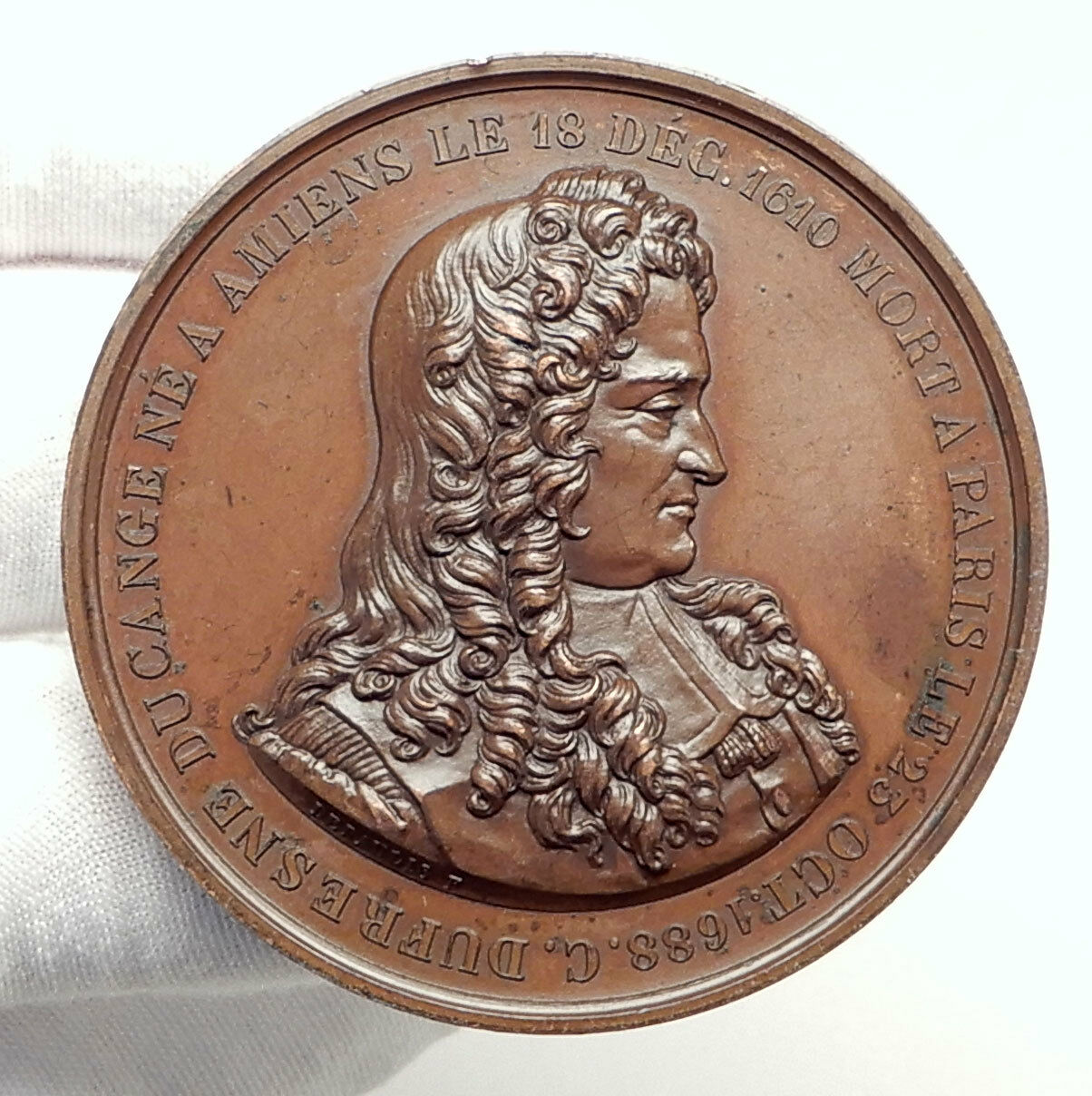|
United States of America
Bicentennial – Council of the Thirteen Original States – Josiah Bartlett
1972 Proof Silver Medal 39mm (32.00 grams) Sterling Silver
Reference: Franklin Mint
Josiah Bartlett facing 1/2 right in government building.
JOSIAH BARTLETT PHYSICIAN NEW HAMPSHIRE, Feather pen and ink well, signature below.
Edge Lettering:
OFFICIAL MEDAL OF THE BICENTENNIAL COUNCIL OF THE 13 ORIGINAL STATES 72 P STERLING
You are bidding on the exact item pictured, provided with a Certificate of Authenticity and Lifetime Guarantee of Authenticity.
The Thirteen American Colonies formed the United States of America in July 1776. Their groupings were: New England (New Hampshire; Massachusetts; Rhode Island; Connecticut); Middle (New York; New Jersey; Pennsylvania; Delaware); Southern (Maryland; Virginia; North Carolina; South Carolina; and Georgia).
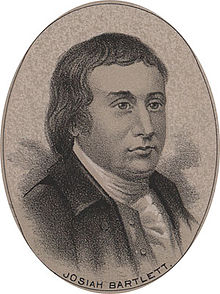 Josiah Bartlett (December 2, 1729 – May 19, 1795) was an American Founding Father, physician, statesman, a delegate to the Continental Congress for New Hampshire, and a signatory to the Articles of Confederation and the Declaration of Independence. He served as the first governor of New Hampshire and chief justice of the New Hampshire Superior Court of Judicature. Josiah Bartlett (December 2, 1729 – May 19, 1795) was an American Founding Father, physician, statesman, a delegate to the Continental Congress for New Hampshire, and a signatory to the Articles of Confederation and the Declaration of Independence. He served as the first governor of New Hampshire and chief justice of the New Hampshire Superior Court of Judicature.
Bartlett actively practiced medicine for 45 years, after having apprenticed with another doctor and then establishing his own practice at age 20. Around 1735, the area around Kingston suffered an epidemic of a fever and canker called throat distemper. For adults it was a serious illness, and for children it was frequently fatal, especially among the very young. When the illness struck again in 1754, Bartlett experimented with therapy using several available drugs and empirically discovered that Peruvian bark would relieve symptoms long enough to allow recovery.
In 1790, Bartlett secured legislation recognizing the New Hampshire Medical Society. He was also elected chief executive of New Hampshire. He served in 1791 and 1792 as president. In 1790, he delivered the commencement address at Dartmouth College when his son Ezra graduated. Bartlett was awarded an honorary Doctorate of Medicine the same day his son was awarded the same degree.
Bartlett became active in the political affairs of Kingston, and in 1765 he was elected to the colonial assembly. In 1767, he became the colonel of his county’s militia, and Governor John Wentworth appointed him justice of the peace. As the Revolution neared, his Whig policies brought him into opposition with Wentworth. Although his lodge is not known, his great-grandson, Levi S. Bartlett, had a letter written by Josiah to his son Ezra saying, “I attended a Mason meeting last night, and as soon as you can I wish you would join the Masons.” In 1774, Bartlett joined the Assembly’s committee of correspondence and began his work with the revolutionary leaders of the other 12 colonies. Later that year, when Wentworth dismissed, or prorogued, the Assembly, Josiah was elected to its revolutionary (and illegal) successor, the Provincial Assembly. He also suffered the loss of his home by fire, alleged to have been set by opposition Tories. He moved his family out to the farmhouse and began rebuilding immediately. When the assembly appointed Bartlett and John Pickering as delegates to the Continental Congress, he declined because he wished to attend to his family, but remained active in New Hampshire’s affairs. In one of Governor Wentworth’s last acts before being expelled from New Hampshire in 1775, he revoked Bartlett’s commissions as justice, militia colonel, and assemblyman.
Bartlett was selected as a delegate again in 1775, and attended that session as well as the meetings in 1776. Indeed, for a time in late 1775 and early 1776, he was the only delegate attending from New Hampshire. Much of the work of the Congress was carried out in committees. The most important of these had a delegate from each state, which meant that Bartlett served on all of them, including those of safety, secrecy, munitions, marine, and civil government.
Eventually, after his continued letters home to the assembly and committee of safety in New Hampshire, William Whipple and Matthew Thornton were added to the delegation in Philadelphia. When the question of declaring independence from Great Britain was officially brought up in 1776, as a representative of the northernmost colony Bartlett was the first to be asked, and he answered in the affirmative. He signed the Declaration of Independence.
In 1777, he declined a return to the Congress, citing fatigue. But when trouble threatened, he used his medical skills and accompanied John Stark’s forces to the Battle of Bennington in August. He was re-elected to Congress in 1778 and served on the committee that drafted the Articles of Confederation. But, after the articles were adopted, he returned to New Hampshire to attend to personal business. This was the last of his federal service. While he was at the Congress in 1776, his wife Mary had managed the farm, seen to the completion of rebuilding their house, cared for nine children, and given birth to Hannah.
Although he remained in the state after 1778, in 1779 he returned to his role as a judge, serving in the Court of Common Pleas. Then in 1782 he was appointed to the New Hampshire Supreme Court. In 1788, Bartlett was made the chief justice of the state supreme court. That same year he was a delegate to the New Hampshire convention for adoption of the U.S. Constitution, serving part of the time as its chairman. He argued for ratification, which took place on June 21, 1788. The legislature of the new state of New Hampshire selected him to be a U. S. Senator, but he declined the office.
When the new state constitution took effect in 1792, he became governor. He resigned in 1794 after four years because of declining health; he died the next year. During his tenure, he oversaw the installation of a new state constitution, compilation of the laws and statutes in force, and provision for the early payment of the state’s debt. He actively promoted agriculture and manufacturing, the improvement of roads, and saw the start of projects to build canals.
 The United States of America (USA), commonly known as the United States (U.S. or US) or America, is a country composed of 50 states, a federal district, five major self-governing territories, and various possessions. At 3.8 million square miles (9.8 million km2), the United States is the world’s third or fourth largest country by total area and is slightly smaller than the entire continent of Europe’s 3.9 million square miles (10.1 million km2). With a population of over 327 million people, the U.S. is the third most populous country. The capital is Washington, D.C., and the largest city by population is New York City. Forty-eight states and the capital’s federal district are contiguous in North America between Canada and Mexico. The State of Alaska is in the northwest corner of North America, bordered by Canada to the east and across the Bering Strait from Russia to the west. The State of Hawaii is an archipelago in the mid-Pacific Ocean. The U.S. territories are scattered about the Pacific Ocean and the Caribbean Sea, stretching across nine official time zones. The extremely diverse geography, climate, and wildlife of the United States make it one of the world’s 17 megadiverse countries. The United States of America (USA), commonly known as the United States (U.S. or US) or America, is a country composed of 50 states, a federal district, five major self-governing territories, and various possessions. At 3.8 million square miles (9.8 million km2), the United States is the world’s third or fourth largest country by total area and is slightly smaller than the entire continent of Europe’s 3.9 million square miles (10.1 million km2). With a population of over 327 million people, the U.S. is the third most populous country. The capital is Washington, D.C., and the largest city by population is New York City. Forty-eight states and the capital’s federal district are contiguous in North America between Canada and Mexico. The State of Alaska is in the northwest corner of North America, bordered by Canada to the east and across the Bering Strait from Russia to the west. The State of Hawaii is an archipelago in the mid-Pacific Ocean. The U.S. territories are scattered about the Pacific Ocean and the Caribbean Sea, stretching across nine official time zones. The extremely diverse geography, climate, and wildlife of the United States make it one of the world’s 17 megadiverse countries.
.svg/85px-Great_Seal_of_the_United_States_(obverse).svg.png) Paleo-Indians migrated from Siberia to the North American mainland at least 12,000 years ago. European colonization began in the 16th century. The United States emerged from the thirteen British colonies established along the East Coast. Numerous disputes between Great Britain and the colonies following the French and Indian War led to the American Revolution, which began in 1775, and the subsequent Declaration of Independence in 1776. The war ended in 1783 with the United States becoming the first country to gain independence from a European power. The current constitution was adopted in 1788, with the first ten amendments, collectively named the Bill of Rights, being ratified in 1791 to guarantee many fundamental civil liberties. The United States embarked on a vigorous expansion across North America throughout the 19th century, acquiring new territories, displacing Native American tribes, and gradually admitting new states until it spanned the continent by 1848. Paleo-Indians migrated from Siberia to the North American mainland at least 12,000 years ago. European colonization began in the 16th century. The United States emerged from the thirteen British colonies established along the East Coast. Numerous disputes between Great Britain and the colonies following the French and Indian War led to the American Revolution, which began in 1775, and the subsequent Declaration of Independence in 1776. The war ended in 1783 with the United States becoming the first country to gain independence from a European power. The current constitution was adopted in 1788, with the first ten amendments, collectively named the Bill of Rights, being ratified in 1791 to guarantee many fundamental civil liberties. The United States embarked on a vigorous expansion across North America throughout the 19th century, acquiring new territories, displacing Native American tribes, and gradually admitting new states until it spanned the continent by 1848.
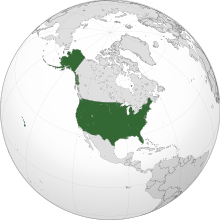 During the second half of the 19th century, the Civil War led to the abolition of slavery. By the end of the century, the United States had extended into the Pacific Ocean, and its economy, driven in large part by the Industrial Revolution, began to soar. The Spanish-American War and World War I confirmed the country’s status as a global military power. The United States emerged from World War II as a global superpower, the first country to develop nuclear weapons, the only country to use them in warfare, and a permanent member of the United Nations Security Council. The Rights Acts of 1964, 1965 and 1968 outlaws discrimination based on race or color. During the Cold War, the United States and the Soviet Union competed in the Space Race, culminating with the 1969 U.S. Moon landing. The end of the Cold War and the collapse of the Soviet Union in 1991 left the United States as the world’s sole superpower. During the second half of the 19th century, the Civil War led to the abolition of slavery. By the end of the century, the United States had extended into the Pacific Ocean, and its economy, driven in large part by the Industrial Revolution, began to soar. The Spanish-American War and World War I confirmed the country’s status as a global military power. The United States emerged from World War II as a global superpower, the first country to develop nuclear weapons, the only country to use them in warfare, and a permanent member of the United Nations Security Council. The Rights Acts of 1964, 1965 and 1968 outlaws discrimination based on race or color. During the Cold War, the United States and the Soviet Union competed in the Space Race, culminating with the 1969 U.S. Moon landing. The end of the Cold War and the collapse of the Soviet Union in 1991 left the United States as the world’s sole superpower.
The United States is the world’s oldest surviving federation. It is a federal republic and a representative democracy. The United States is a founding member of the United Nations, World Bank, International Monetary Fund, Organization of American States (OAS), and other international organizations. The United States is a highly developed country, with the world’s largest economy by nominal GDP and second-largest economy by PPP, accounting for approximately a quarter of global GDP. The U.S. economy is largely post-industrial, characterized by the dominance of services and knowledge-based activities, although the manufacturing sector remains the second-largest in the world. The United States is the world’s largest importer and the second largest exporter of goods, by value. Although its population is only 4.3% of the world total, the U.S. holds 31% of the total wealth in the world, the largest share of global wealth concentrated in a single country.
Despite wide income and wealth disparities, the United States continues to rank very high in measures of socioeconomic performance, including average wage, human development, per capita GDP, and worker productivity. The United States is the foremost military power in the world, making up a third of global military spending, and is a leading political, cultural, and scientific force internationally.
|





 Josiah Bartlett (December 2, 1729 – May 19, 1795) was an American Founding Father, physician, statesman, a delegate to the Continental Congress for New Hampshire, and a signatory to the Articles of Confederation and the Declaration of Independence. He served as the first governor of New Hampshire and chief justice of the New Hampshire Superior Court of Judicature.
Josiah Bartlett (December 2, 1729 – May 19, 1795) was an American Founding Father, physician, statesman, a delegate to the Continental Congress for New Hampshire, and a signatory to the Articles of Confederation and the Declaration of Independence. He served as the first governor of New Hampshire and chief justice of the New Hampshire Superior Court of Judicature.  The United States of America (USA), commonly known as the United States (U.S. or US) or America, is a country composed of 50 states, a federal district, five major self-governing territories, and various possessions. At 3.8 million square miles (9.8 million km2), the United States is the world’s third or fourth largest country by total area and is slightly smaller than the entire continent of Europe’s 3.9 million square miles (10.1 million km2). With a population of over 327 million people, the U.S. is the third most populous country. The capital is Washington, D.C., and the largest city by population is New York City. Forty-eight states and the capital’s federal district are contiguous in North America between Canada and Mexico. The State of Alaska is in the northwest corner of North America, bordered by Canada to the east and across the Bering Strait from Russia to the west. The State of Hawaii is an archipelago in the mid-Pacific Ocean. The U.S. territories are scattered about the Pacific Ocean and the Caribbean Sea, stretching across nine official time zones. The extremely diverse geography, climate, and wildlife of the United States make it one of the world’s 17 megadiverse countries.
The United States of America (USA), commonly known as the United States (U.S. or US) or America, is a country composed of 50 states, a federal district, five major self-governing territories, and various possessions. At 3.8 million square miles (9.8 million km2), the United States is the world’s third or fourth largest country by total area and is slightly smaller than the entire continent of Europe’s 3.9 million square miles (10.1 million km2). With a population of over 327 million people, the U.S. is the third most populous country. The capital is Washington, D.C., and the largest city by population is New York City. Forty-eight states and the capital’s federal district are contiguous in North America between Canada and Mexico. The State of Alaska is in the northwest corner of North America, bordered by Canada to the east and across the Bering Strait from Russia to the west. The State of Hawaii is an archipelago in the mid-Pacific Ocean. The U.S. territories are scattered about the Pacific Ocean and the Caribbean Sea, stretching across nine official time zones. The extremely diverse geography, climate, and wildlife of the United States make it one of the world’s 17 megadiverse countries. .svg/85px-Great_Seal_of_the_United_States_(obverse).svg.png) Paleo-Indians migrated from Siberia to the North American mainland at least 12,000 years ago. European colonization began in the 16th century. The United States emerged from the thirteen British colonies established along the East Coast. Numerous disputes between Great Britain and the colonies following the French and Indian War led to the American Revolution, which began in 1775, and the subsequent Declaration of Independence in 1776. The war ended in 1783 with the United States becoming the first country to gain independence from a European power. The current constitution was adopted in 1788, with the first ten amendments, collectively named the Bill of Rights, being ratified in 1791 to guarantee many fundamental civil liberties. The United States embarked on a vigorous expansion across North America throughout the 19th century, acquiring new territories, displacing Native American tribes, and gradually admitting new states until it spanned the continent by 1848.
Paleo-Indians migrated from Siberia to the North American mainland at least 12,000 years ago. European colonization began in the 16th century. The United States emerged from the thirteen British colonies established along the East Coast. Numerous disputes between Great Britain and the colonies following the French and Indian War led to the American Revolution, which began in 1775, and the subsequent Declaration of Independence in 1776. The war ended in 1783 with the United States becoming the first country to gain independence from a European power. The current constitution was adopted in 1788, with the first ten amendments, collectively named the Bill of Rights, being ratified in 1791 to guarantee many fundamental civil liberties. The United States embarked on a vigorous expansion across North America throughout the 19th century, acquiring new territories, displacing Native American tribes, and gradually admitting new states until it spanned the continent by 1848.  During the second half of the 19th century, the Civil War led to the abolition of slavery. By the end of the century, the United States had extended into the Pacific Ocean, and its economy, driven in large part by the Industrial Revolution, began to soar. The Spanish-American War and World War I confirmed the country’s status as a global military power. The United States emerged from World War II as a global superpower, the first country to develop nuclear weapons, the only country to use them in warfare, and a permanent member of the United Nations Security Council. The Rights Acts of 1964, 1965 and 1968 outlaws discrimination based on race or color. During the Cold War, the United States and the Soviet Union competed in the Space Race, culminating with the 1969 U.S. Moon landing. The end of the Cold War and the collapse of the Soviet Union in 1991 left the United States as the world’s sole superpower.
During the second half of the 19th century, the Civil War led to the abolition of slavery. By the end of the century, the United States had extended into the Pacific Ocean, and its economy, driven in large part by the Industrial Revolution, began to soar. The Spanish-American War and World War I confirmed the country’s status as a global military power. The United States emerged from World War II as a global superpower, the first country to develop nuclear weapons, the only country to use them in warfare, and a permanent member of the United Nations Security Council. The Rights Acts of 1964, 1965 and 1968 outlaws discrimination based on race or color. During the Cold War, the United States and the Soviet Union competed in the Space Race, culminating with the 1969 U.S. Moon landing. The end of the Cold War and the collapse of the Soviet Union in 1991 left the United States as the world’s sole superpower. 

